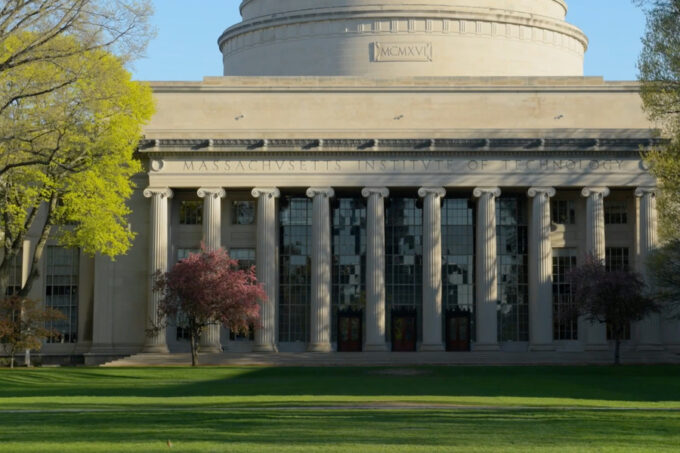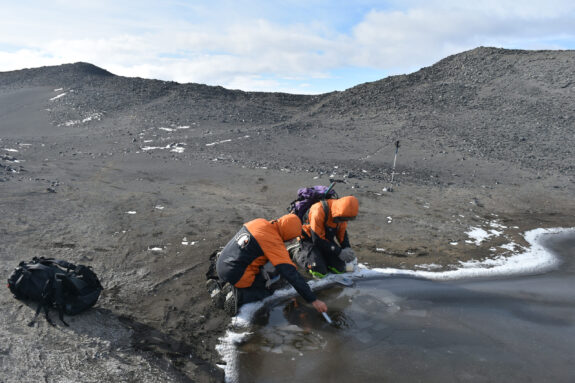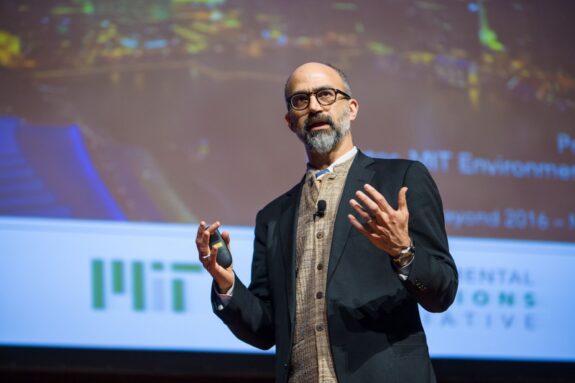Q&A: Zhendong Zhang, SEG Geophysics Reviewer of the Year, on getting into the peer review process

Zhendong Zhang, a postdoctoral researcher in the Nakata group in the Earth Resources Laboratory (ERL), was named the 2022 winner of the Geophysics Reviewer of the Year award by the Society of Exploration Geophysics (SEG). Since its creation in 2012, this award recognizes “the fundamental contributions the reviewers bring to the publication process and encourage people to contribute more of their valuable time to this effort.”
The peer review process, which became common practice in the science community following World War II, invites experts in the field to review, critique and provide feedback on papers that have been submitted to scientific journals before publishing. Prospective reviewers are sent an invitation by the journal, and they can decide whether or not to accept. Papers are usually reviewed by three reviewers and an editor.
As one of the top reviewers for SEG, Zhang took a moment to answer some basic questions about how he got into the review process, how he approaches his reviews, and some advice for those starting the process to become a reviewer.
Q: At what point in your academic career did you start reviewing papers?
A: The second year of my PhD, in 2017. My PhD advisor suggested me to the associate editor. It often starts with connections of PhD advisors, if you didn’t publish a journal paper before.
Q: How did it make you feel to be recommended?
A: It’s a little bit nervous at the beginning, because you do not want to make a bad suggestion. So you need to read related papers to make as good as possible suggestions to the associate editors.
Q: Do you still get nervous when you get asked to review?
A: It depends on subject, but in general I’m much more familiar with the subject, so I’m not very nervous now.
Q: How often do you get asked to review papers?
A: During the pandemic I think I got two invitations per month from different journals.
Q: What are some things to consider when you’re deciding whether or not to accept an invitation?
A: The subject of the paper and also the journal. I am curious about the latest development in the fields that I’m working on, so the manuscripts submitted to the journal [can be seen] earlier than the published papers so it’s a good source for new knowledge. But I also sometimes accept new topics I’m not familiar with; it will force you to learn something new in related fields you are not familiar with.
Q: Are there any other benefits to the review process for you?
A: Recognization by the community. I didn’t anticipate that I will get [an award], but it will give you some recognization that will help you with your career.
Q: What are some of the drawbacks?
A: It will take your working time, or your research time. At the early stage, I usually spent maybe one week to read the paper, to understand the idea, and then make the final review decision. Now I usually spend the morning or half of the day to finish the review because I’m more familiar with the subjects submitted to the paper. And another drawback is, in the later stage, you may not find many new ideas from the review process.
Q: What advice would you give to people who are considering reviewing or have been recommended, but might be feeling nervous or under qualified?
A: I think it’s very common that when you start to review a paper you will feel nervous, because you’re not sure you will give them the most accurate feedback. But the paper is reviewed by three reviewers and one associate editor, so even if you cannot give very good suggestions, [the editor] can make a good decision based on other reviewers’ comments. But you will get more practiced and more knowledgeable in your field, so I think it’s a good learning process.


